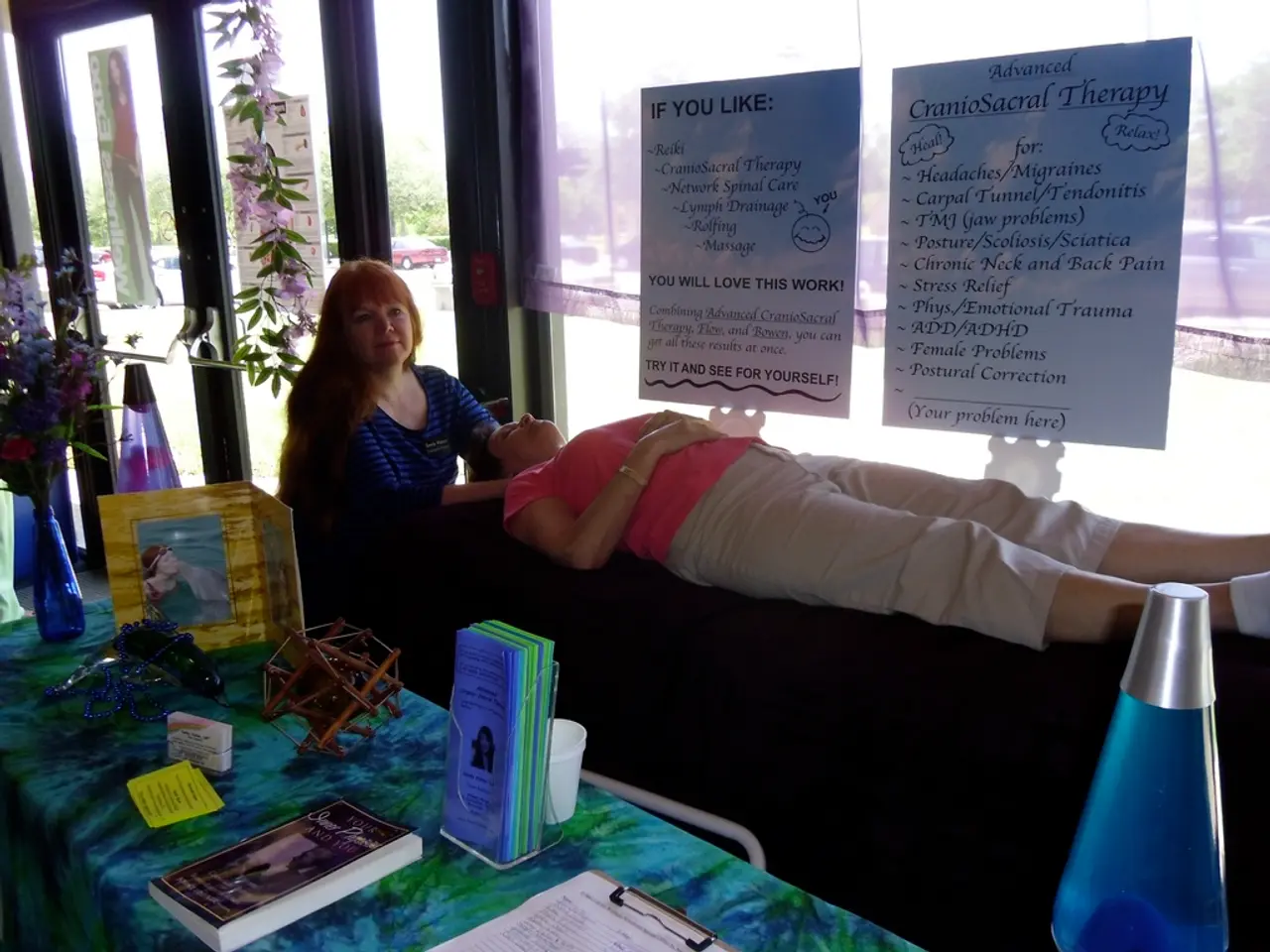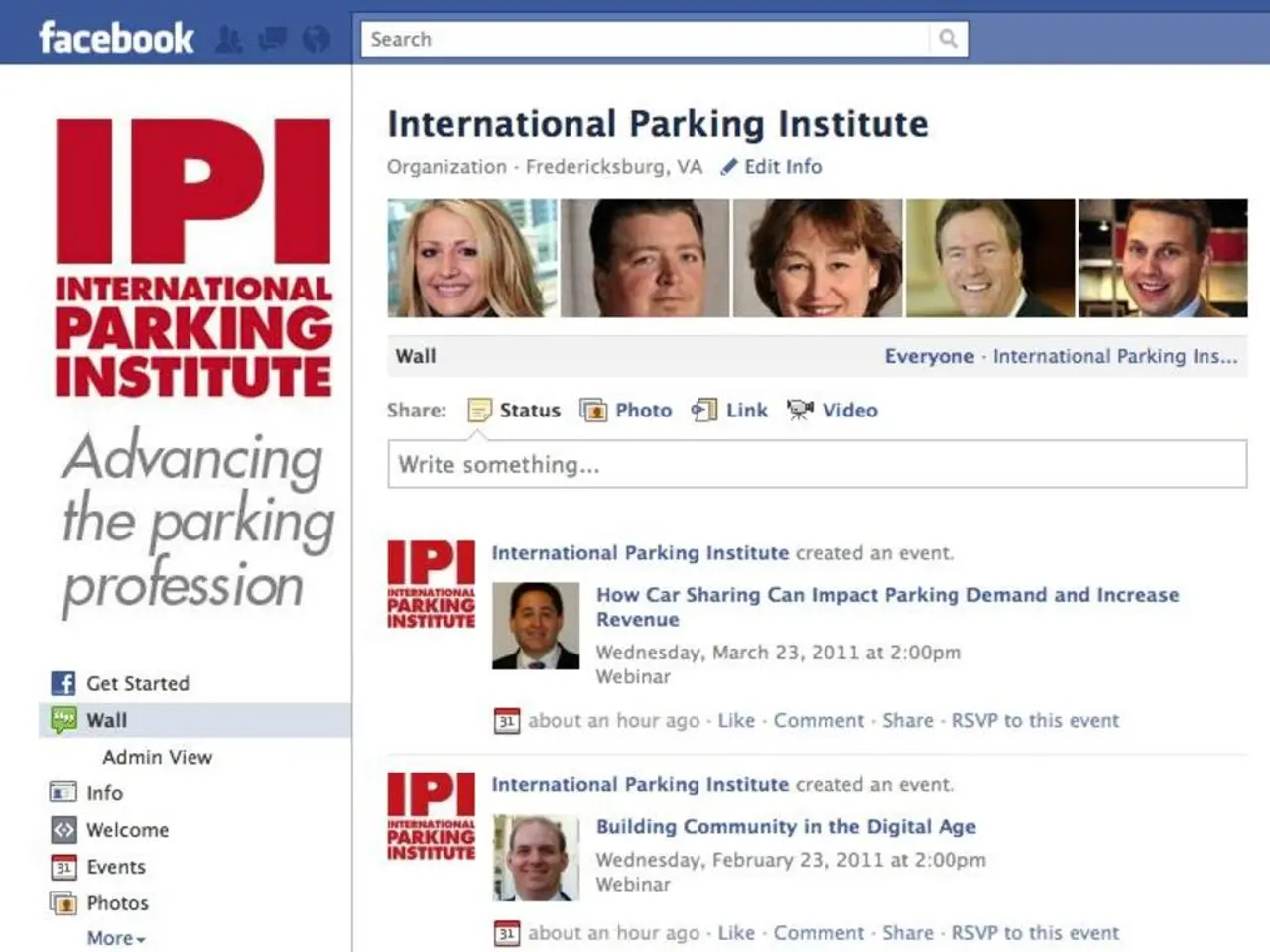Exhaustion of Emotions: Origins, Signs, and Paths to Recovery
Emotional exhaustion is a common state of mental, emotional, and physical depletion, often caused by prolonged stress, anxiety, or emotional strain. Chronic stress, work-related pressures, academic demands, and significant life changes are common triggers. Underlying mental health issues such as anxiety, depression, burnout, post-traumatic stress disorder (PTSD), and seasonal affective disorder (SAD) can also contribute to emotional exhaustion.
The symptoms of emotional exhaustion are far-reaching and can significantly impact a person's everyday life. Excessive fatigue, sleep disturbances, emotional detachment, physical symptoms like headaches and muscle tension, difficulty concentrating, and gastrointestinal issues are common symptoms.
Treatment for emotional exhaustion typically involves addressing the underlying causes and developing coping strategies. Therapy, such as Cognitive Behavioral Therapy (CBT) and Acceptance and Commitment Therapy (ACT), can help identify and change negative thought patterns and behaviours. Stress reduction techniques, including mindfulness, meditation, and relaxation exercises, are beneficial for managing stress. Self-care, which involves engaging in activities that promote relaxation and personal fulfilment, can help rebalance effort and rest.
Consulting mental health professionals for guidance and support is also crucial. In some cases, therapy or medication may be necessary to treat emotional exhaustion. For instance, a study from 2024 suggests that self-care behaviours may make medical students less prone to burnout and emotional exhaustion.
Interestingly, the term "burnout" was first used by psychologists in the 1970s to describe the effects of severe stress on "helping" professionals, such as doctors and nurses. However, according to the ICD-11, burnout specifically applies to the workplace and not other areas of a person's life.
People in jobs at risk of involving secondary trauma, such as social workers, healthcare professionals, firefighters, and police officers, may be more likely to experience emotional exhaustion and related mental health issues. A study from 2022 indicates that workplace loneliness can contribute to feelings of emotional exhaustion among hotel employees.
Emotional exhaustion can affect a person's relationships, behaviour, and even their ability to connect with others. People with emotional exhaustion may experience less ability to connect with others, increased rates of absence from work, a lack of enthusiasm in work and personal life, low self-esteem, missed deadlines, changes in work performance, and social withdrawal from others.
It's important to note that emotional exhaustion can occur in demanding jobs or situations, but it can also be triggered by going through a significant life change, being a caregiver, financial stress, having a baby or raising children, homelessness, juggling several responsibilities, living with a chronic medical condition, working long hours, working in a high-pressure environment, and feeling overwhelmed by factors in one's life.
High self-critical perfectionism has been identified as a predictor for emotional exhaustion among physicians. To reduce emotional exhaustion and burnout, people may need to make lifestyle changes, such as reducing stress, making more positive lifestyle choices, maintaining a work-life balance, connecting with others, and making attitude changes. Self-care methods may include socialising with others, following a balanced diet, taking part in leisure activities, attending stress-reduction workshops, and maintaining a regular sleep routine.
- Despite the various coping strategies, chronic stress and underlying mental health issues like anxiety, depression, and post-traumatic stress disorder can lead to emotional exhaustion.
- A study from 2024 suggests that engaging in self-care behaviors, such as maintaining a work-life balance and prioritizing personal wellness, may protect medical students from emotional exhaustion and burnout.
- The term "burnout" was initially used by psychologists in the 1970s to describe the effects of stress on helping professionals, but it now specifically applies to the workplace, according to the ICD-11.
- People in professions such as social work, healthcare, firefighting, and policing may be at a higher risk of experiencing emotional exhaustion and related mental health concerns due to secondary trauma.
- Emotional exhaustion can have far-reaching impacts on a person's life, affecting their relationships, behavior, work performance, and even their ability to bond with others.
- According to the latest research, high self-critical perfectionism is a key predictor of emotional exhaustion among physicians, suggesting that attitude changes are necessary to reduce emotional exhaustion and burnout.
- People can reduce emotional exhaustion by making positive lifestyle choices, such as maintaining a balanced diet, attending stress-reduction workshops, socializing with others, and practicing mindfulness, meditation, or relaxation exercises.




